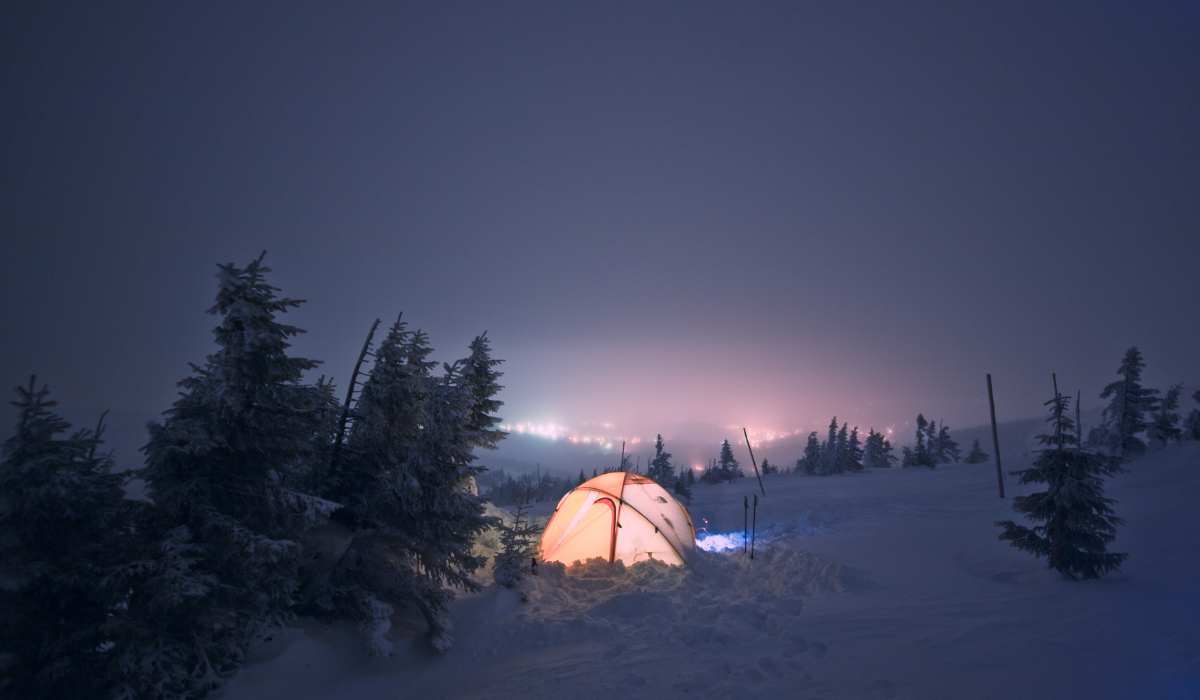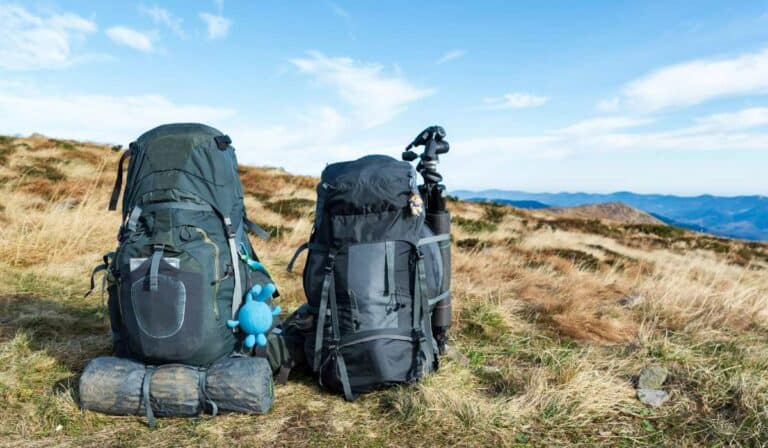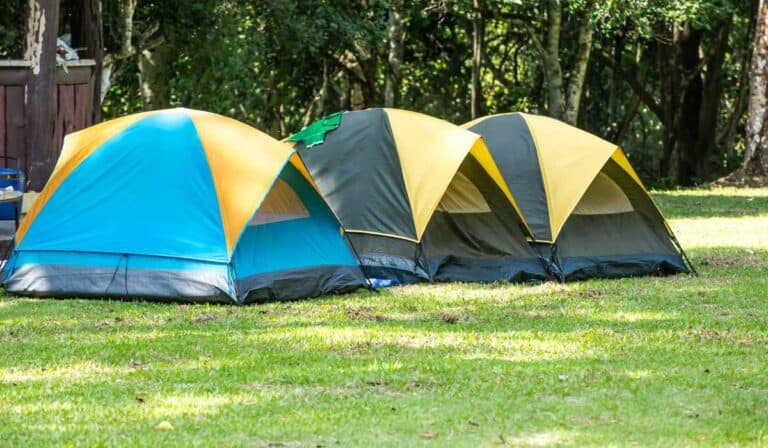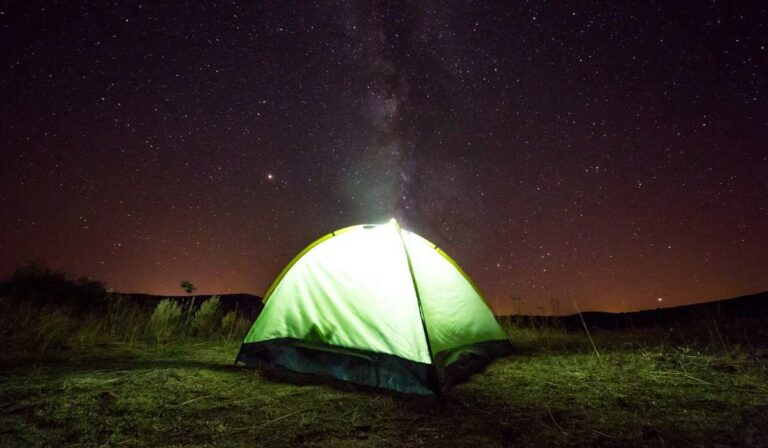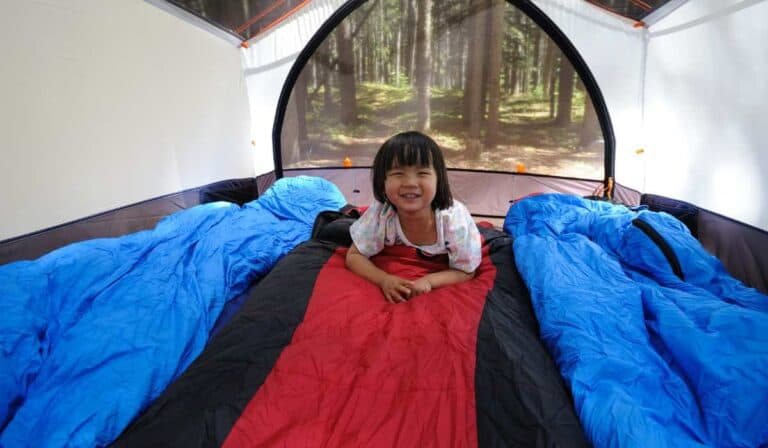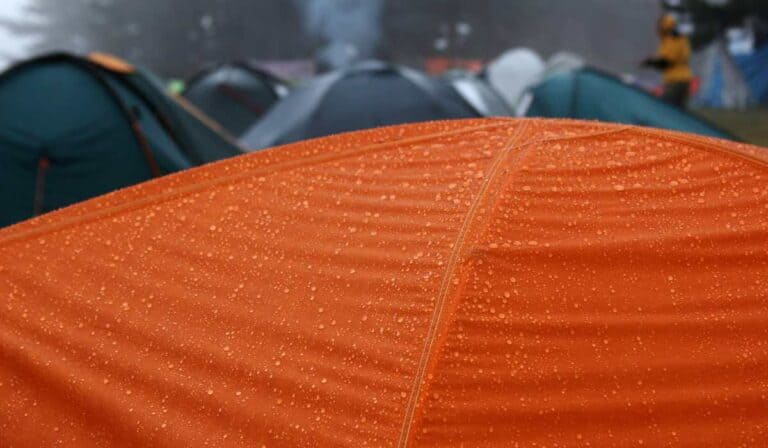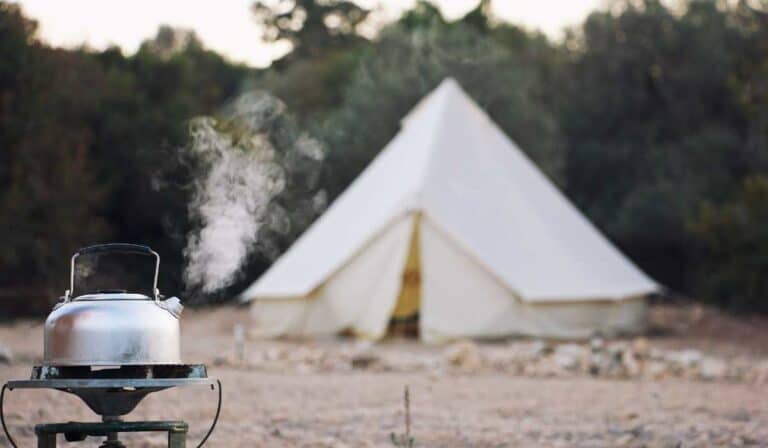The Best Safe Tent Heaters for Camping
When it comes to camping, having a safe tent heater is essential for both comfort and safety. In this comprehensive guide, we will explore various types of safe tent heaters for camping that can keep you warm during those chilly nights outdoors.
We’ll investigate the possibilities of propane, electric, and catalytic tent heaters – each with its own distinctive advantages and features. You’ll learn about popular models such as Mr. Heater Buddy Series and Coleman’s BlackCat series along with crucial safety features like Oxygen Depletion Sensors (ODS) and tip-over protection.
Furthermore, we will discuss the advantages of using electric tent heaters in conjunction with portable power sources like Goal Zero’s Yeti line-up. Lastly, proper usage tips including ventilation techniques to prevent condensation buildup within your sheltered space will be covered to ensure a comfortable and enjoyable camping experience while utilizing these safe tent heaters for camping.
Table of Contents
1. Types of Safe Tent Heaters for Camping

Different types of tent heaters, each with its own benefits and drawbacks depending on personal needs and desires, are available for purchase. In this section, we will explore three popular options: propane heaters, electric heaters, and catalytic heaters. By understanding their unique features and safety measures, you can find the perfect fit for your camping adventure.
Propane Tent Heaters
Propane tent heaters, such as the Mr. Heater Buddy series, are widely used due to their portability and ease of use. They do not require electricity or batteries but rely solely on propane fuel tanks which can easily be found at most camping stores or gas stations. One significant advantage is that many models come equipped with an oxygen depletion sensor (ODS), ensuring safety while providing heat inside your tent.
Electric Tent Heaters
If you have access to electrical power sources like campsites with hookups or portable generators (Goal Zero’s Yeti line-up, for example), electric tent heaters may be a safer option since they don’t produce any open flames nor emit harmful gases. However, this also means that they may not provide enough heat output compared to combustible fuels.
Catalytic Tent Heaters
Catalytic tent heaters, such as Coleman’s BlackCat series, operate through chemical reactions between a fuel (typically propane) and catalysts within these devices. This results in continuous heat production without producing any flame whatsoever, making them relatively safe compared to traditional combustion-based alternatives. Additionally, some models also feature an ODS system for added safety.
Essential Safety Features for Tent Heaters
- Tip-over protection: Shuts off the heater if knocked over.
- Low oxygen shut-off sensors: Detect low oxygen levels and automatically turn off the device.
- Cool-to-touch exteriors: Prevent burns from accidental contact with hot surfaces.
No matter which type of tent heater you choose, always prioritize safety features and follow manufacturers’ guidelines to ensure a fun and secure camping experience.
Key Thought:
Learn about the different types of safe tent heaters for camping, including propane, electric, and catalytic heaters. Each type has its own advantages and disadvantages depending on individual needs and preferences. Always prioritize safety features such as tip-over protection, low oxygen shut-off sensors, and cool-to-touch exteriors to ensure a fun and secure camping experience. Propane Tent Heaters – Portability and Ease of Use
For campers who desire a convenient heat source, propane tent heaters offer portability and ease of use. These heaters don’t require electricity or batteries; instead, they rely on propane fuel tanks, which can be found at most camping stores or gas stations. This makes them perfect for campers who want a reliable heat source without the hassle of finding power outlets.
- Advantages of Propane Tent Heaters: Propane heaters offer several benefits, including quick heating capabilities, adjustable temperature settings, and minimal maintenance requirements. Their small size makes them convenient to transport with other camping items.
- Oxygen Depletion Sensor (ODS): One essential safety feature in many propane tent heaters is an oxygen depletion sensor. The ODS system detects when oxygen levels drop too low inside the tent due to combustion byproducts like carbon monoxide. When the oxygen level dips too low due to combustion byproducts, such as carbon monoxide, the ODS will activate and shut off the heater in order to avert any hazardous circumstances.
- Popular Models like Mr. Heater Buddy Series: A well-known example of safe propane tent heaters is the Mr. Heater Buddy series. These portable devices come equipped with an ODS system as well as tip-over protection features ensuring both warmth and safety during your outdoor adventures.
In addition to these advantages, it’s important always to follow proper usage guidelines when operating any type of heater in a confined space such as a tent (source). By choosing a propane tent heater with built-in safety features and adhering to manufacturer recommendations, you can enjoy cozy nights in your tent without compromising on safety.
Click here to read about Easy Up Tent Camping: A Comprehensive Guide
2. Electric Tent Heaters – A Safer Option with Access to Power Sources
If you’re camping at a site with electrical hookups or have access to a portable generator, electric tent heaters can be an excellent choice for keeping warm during chilly nights. These heaters are generally safer than other options because they don’t produce open flames or emit harmful gases. However, their heat output may not be as powerful compared to combustible fuel-based alternatives.
Benefits of Electric Heater Usage in Tents
- Safety: With no open flame and zero emissions, electric heaters reduce the risk of fire accidents and carbon monoxide poisoning.
- No Fuel Required: Unlike propane or catalytic heaters, there’s no need to carry extra fuel tanks; just plug them into an available power source.
- Ease of Use: Simply turn on the heater and adjust the temperature settings according to your preference without any complicated setup process.
Limitations in Terms of Heating Capacity
The main drawback of using electric tent heaters is that they might not provide enough warmth for larger tents or extremely cold conditions. This limitation makes them more suitable for milder climates where temperatures don’t drop too low at night. Additionally, these devices require a consistent power supply which may not always be readily available while camping off-grid.
Examples like Goal Zero’s Yeti Line-Up
To overcome some limitations associated with electric tent heaters, consider investing in portable generators such as those offered by Goal Zero’s Yeti line-up. These generators allow you to use your electric heater even when camping in remote locations without access to electrical hookups. Be mindful that the generator’s capability should be adequate to provide power for your heating system and any other equipment you intend on utilizing while camping.
Key Thought:
Electric tent heaters are a safer option for camping if you have access to power sources, as they don’t produce open flames or harmful gases. However, their heating capacity may not be sufficient for larger tents or extremely cold conditions. Portable generators like Goal Zero’s Yeti line-up can help overcome these limitations when camping off-grid.
Click here to read about Discover the Best Tent Camping in Indiana
3. Catalytic Tent Heaters – Flameless Heat Production Through Chemical Reactions

For campers seeking a safe and efficient way to keep their tents warm, catalytic tent heaters are an excellent choice. These innovative devices generate heat through chemical reactions between a fuel (typically propane) and catalysts within the heater. This process results in continuous heat production without producing any flame whatsoever, making them relatively safe compared to traditional combustion-based alternatives.
How Catalytic Tent Heaters Work
The magic behind catalytic tent heaters lies in their unique method of generating warmth. When propane is exposed to a platinum or ceramic catalyst inside the heater, it triggers a reaction that emits heat energy. This flameless heating technology ensures that your camping experience remains cozy while minimizing fire hazards.
Safety Advantages of Using a Catalytic Heater
- No open flames: Since these heaters don’t produce an open flame, they significantly reduce the risk of accidental fires.
- Lower carbon monoxide emissions: The absence of combustion means lower CO emissions than other types of tent heaters.
- Built-in safety features: Many models come equipped with essential safety features such as oxygen depletion sensors (ODS), which shut off the heater if oxygen levels drop too low.
Popular Models like Coleman’s BlackCat Series
If you’re considering investing in a catalytic tent heater for your next outdoor adventure, one popular option is Coleman’s BlackCat series. These compact and portable heaters provide ample warmth for small to medium-sized tents and come with an ODS system for added safety. With a variety of models available, you’re sure to find the perfect fit for your camping needs.
Remember that no matter which type of tent heater you choose, always prioritize safety and follow manufacturer guidelines for proper usage. Happy camping.
Key Thought:
Catalytic tent heaters are a safe and efficient way to keep your camping experience cozy without the risk of accidental fires. These innovative devices generate heat through chemical reactions between fuel and catalysts, resulting in continuous heat production without producing any flame whatsoever. Remember to prioritize safety no matter which type of tent heater you choose for your next outdoor adventure.
Click here to read about The Best Tents for Beach Camping: Top Picks & Tips
4. Essential Safety Features for Tent Heaters
When choosing a tent heater, safety should be the top priority. It is essential to select heaters specifically designed for tents that come with built-in safety features such as tip-over protection (shutting off if knocked over), low oxygen shut-off sensors, and cool-to-touch exteriors to prevent burns.
Tip-over Protection Feature
A crucial feature in any tent heater is tip-over protection. This ensures that the device automatically shuts off if it gets accidentally knocked over, reducing the risk of fire or injury. Many models on the market today have this feature included as standard.
Low Oxygen Shut-off Sensors
An Oxygen Depletion Sensor (ODS), also known as a Low Oxygen Shut-off Sensor, is an essential safety feature to look for when purchasing a tent heater. These sensors detect when oxygen levels within your tent drop below safe levels due to combustion from your heater. When this occurs, the ODS will automatically turn off your heater before harmful gases like carbon monoxide can accumulate inside your tent. The Mr. Heater Buddy series, for example, comes equipped with an ODS system.
Cool-to-Touch Exterior Designs
- Insulated housing: Some heaters are designed with insulated housings that remain cool to the touch even while in use – preventing accidental burns when handling or moving them around.
- Radiant heating technology: Another way manufacturers ensure their products stay cool to the touch is by using radiant heating technology. This type of heater emits heat directly toward objects and people, rather than warming the air around it – reducing the risk of burns.
By prioritizing these safety features when selecting a tent heater, you can ensure that your camping experience remains both warm and secure.
Click here to read about Types of Fishing Reels – The Complete Guide
5. Proper Ventilation and Usage Guidelines for a Safe Camping Experience

Ensuring a safe environment during your camping adventure is crucial. One of the key aspects to consider when using tent heaters is proper ventilation and adherence to usage guidelines provided by manufacturers. Let’s explore some essential tips that will help you maintain adequate airflow in your tent while preventing condensation buildup, which can lead to dampness, mold growth, and potential health hazards.
Importance of Following Manufacturer Guidelines
Always read and follow the manufacturer’s instructions before using any heater inside your tent. It is essential to adhere to the manufacturer’s instructions for the use of any heater inside a tent; these directions are put in place with safety as their primary concern and often contain details on how far away from combustible materials or walls it should be situated, along with other vital warnings.
Maintaining Adequate Ventilation in Your Tent
- Ventilate wisely: Keep windows or vents open slightly to allow fresh air circulation without letting too much cold air enter the tent. This helps prevent carbon monoxide build-up while maintaining warmth inside.
- Avoid blocking airflow: Make sure not to obstruct any vents or openings with gear or clothing items; doing so could restrict airflow leading to dangerous situations.
- Cross-ventilation technique: If possible, use cross-ventilation by opening two opposite sides of your tent slightly – this allows better air circulation than just one vent alone.
Preventing Condensation Buildup and Potential Health Hazards
Damp conditions within tents can cause mold growth over time which may pose serious health risks if left unchecked. To prevent condensation buildup, follow these simple tips:
- Choose a well-ventilated tent: Opt for tents with built-in vents or mesh windows that promote airflow.
- Avoid cooking inside the tent: Cooking releases moisture into the air which can contribute to dampness; instead, cook outside using a portable stove or campfire setup.
- Dry your gear properly: Wet clothes and gear should be dried outside of the tent whenever possible to minimize humidity levels inside.
Incorporating these practices will help ensure a safe and enjoyable camping experience while using your chosen heater effectively.
Key Thought:
To have a safe camping experience, it is important to follow the manufacturer’s guidelines when using tent heaters and maintain proper ventilation. Adequate airflow can prevent condensation buildup and potential health hazards such as mold growth. Opt for well-ventilated tents with built-in vents or mesh windows, avoid cooking inside the tent, and dry wet gear outside of the tent whenever possible.
FAQs about Safe Tent Heaters for Camping
WHAT SAFETY FEATURES SHOULD I LOOK FOR IN A TENT HEATER?
Additionally, make sure the heater is designed specifically for tents or indoor use to ensure it meets necessary safety standards. It’s also important to choose a reputable brand with positive reviews.
Are There Any Special Precautions to Take When Using a Tent Heater?
Yes, always follow the manufacturer’s instructions and maintain adequate ventilation inside your tent while using a heater. Keep flammable materials away from the heat source and never leave the device unattended. Regularly inspect your equipment for damage or wear before each use.
What Type of Fuel Is Best for Tent Heaters?
The most common fuels used in camping heaters are propane and electricity. Propane heaters offer portability but require proper ventilation; electric heaters need access to an electrical power source like Goal Zero’s Yeti line-up. Catalytic heaters utilize chemical reactions instead of flames and can be safer than traditional combustion-based models.
How Do I Ensure Proper Ventilation When Using a Tent Heater?
To ensure proper ventilation while using a tent heater, keep vents open or partially unzip windows/doors to allow fresh air circulation without causing excessive heat loss. This helps prevent condensation buildup inside your shelter, which could lead to dampness issues over time.
Are There Any Regulations or Guidelines Regarding the Use of Tent Heaters While Camping?
Camping regulations may vary depending on location; however, it is essential that you adhere strictly to manufacturer guidelines concerning the safe usage of heating devices within tents or other enclosed spaces during outdoor activities like camping trips.
Conclusion
For a secure camping experience, tent heaters such as the Mr. Heater Buddy Series with Oxygen Depletion Sensors (ODS) should be considered for optimal warmth. Propane tent heaters like the Mr. Heater Buddy Series offer reliable heating with safety features such as Oxygen Depletion Sensors (ODS). Electric tent heaters provide convenience with access to electrical power sources or portable options like Goal Zero’s Yeti line-up. Catalytic tent heaters use chemical reactions for heat production without an open flame, such as Coleman’s BlackCat series.
It’s important to consider essential safety features when choosing a tent heater, including tip-over protection, low oxygen shut-off sensors, and cool-to-touch exteriors. Proper usage and ventilation tips include maintaining adequate airflow and preventing condensation buildup.

